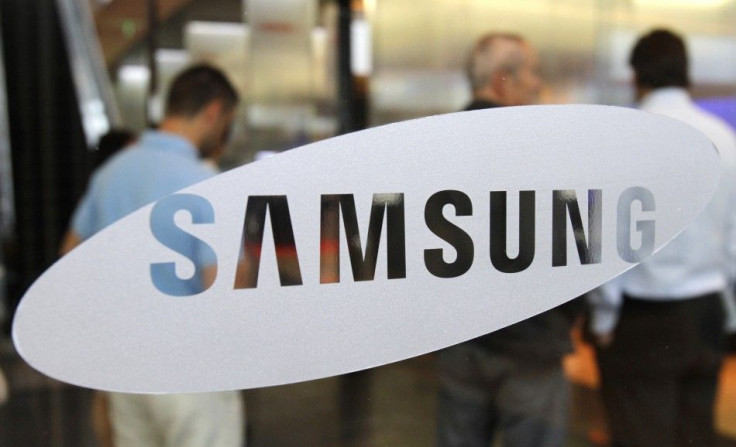Samsung, HTC Set to Gain on iPhone Letdown

Asian smartphone makers have a chance to exploit a rare letdown from pacesetter Apple Inc. after the new iPhone 4S failed to wow fans and investors, leaving Android rivals better placed to grab market share.
The iPhone -- introduced in 2007 with the touchscreen template now adopted by its rivals -- is the gold standard in the booming smartphone market, and its sales have dealt a blow to ambitious plans of many competitors.
Shares of Samsung Electronics, HTC and LG Electronics, who all make phones using Google Inc.'s Android operating system, ended up on Wednesday.
These companies could now aggressively promote their flagship high-end models ahead of Christmas, potentially helping boost sales in the most crucial shopping season.
Apple no longer has a leading edge, its cloud service is even behind Android; it can only sell on brand loyalty now, said Gartner analyst K.C. Lu in Taipei.
Users may wait to buy the next iPhone, if they can't wait, they may shift to brands with more advanced specs.
The new iPhone 4S is identical in form to the previous model, disappointing fans who had hoped for a thinner, bigger-screened design of a product that had not been updated for more than a year.
While the device's high-tech wizardry such as voice commands -- for sending messages, searching for stock prices and other applications -- caught the attention of many analysts, it might not be enough to make it a must-have for consumers.
Major concerns for Samsung had been that its smartphone momentum will decelerate with Apple's new iPhone, but that's now less of a concern as the new iPhone failed to excite many, said Kim Young-chan, an analyst at Shinhan Investment Corp in Seoul.
Shares of Taiwanese smartphone maker HTC rose 0.6 percent in a weaker Taipei market, while Korean rivals Samsung and LG climbed 1.7 percent and 0.4 percent respectively, in a broader Korean market down 2.3 percent.
MID TO LOW-END STRATEGY
However, Apple's move to price the iPhone 4S from $199 in the United States, and analysts' estimates of lower price points in major countries, could help the company expand in developing markets such as Asia, Samsung's backyard.
Apple is cutting the price of the older iPhone 4 to $99, and said an even older 3GS model will be available for free to customers who sign a long-term contract. This might allow Apple to take a bite out of a low-end market it had eschewed.
The continued sales of the iPhone 4 and 3GS are a bigger story, because they represent the best answer Apple has to its strategy for emerging markets and the low end of the smartphone market, said Ovum analyst Jan Dawson.
Even before the low-cost phone, Apple was set to exponentially grow its China business as it stitches deals with operators in the world's largest mobile phone market, home to more than 900 million subscribers.
Apple faces a tough battle in India, the world's second-biggest market for mobile phones with more than 850 million subscribers, where smartphones account for just over 5 percent of the total mobile handset sales.
Very aggressive pricing in the higher-end category of smartphones is unlikely in India in the near future, primarily because the volumes are not strong enough to justify that kind of play in that segment, said Deepak Kumar, research director at IDC India.
TOP SELLING SMARTPHONE
Phones based on Google's Android, which is available for free to handset vendors such as Samsung, HTC, LG and Motorola, have a greater combined market share than Apple's iPhone, which is still the world's No. 1 selling smartphone.
There are still many consumers who don't have the iPhone experience, and Apple still has a lot of markets and carriers to enter, so when there's a new model with better specs, it helps to lift shipments, said Ming-chi Kuo, analyst at Concord Securities in Taipei.
The iPhone 4S targets users who are expiring on their two-year 3GS contract.
Globally, iPhone shipments rose 9.1 percent in the second quarter while Nokia's plummeted more than 30 percent, handing the top spot to Apple with a market share of 18.4 percent, according to IHS iSuppli. Samsung, whose shipments grew faster, is coming on strong with a market share of 17.8 percent.
The lukewarm reception of the new phone hit shares in Apple's suppliers.
Taiwan's Hon Hai, Apple's biggest supplier, was down 1.9 percent, while casing company Foxconn Technology fell 6.9 percent. Camera module maker Largan Precision shed 6.6 percent.
The casing companies should be the most-hit, correcting from the previous rise, because the market has expected a metal case for the new iPhone, said Mike Fang, a fund manager of Paradigm Asset Management.
Fang did not expect iPhone shipments to drop on the disappointment over its appearance however, as a cheaper price would allow sales to expand at a faster pace.
The demand is still there from users upgrading from iPhone 3GS because it's two generations behind, he said.
In Japan, the country's second-largest mobile carrier KDDI will sell Apple's new iPhone, ending rival operator Softbank's highly profitable reign as the sole provider in Japan.
(Additional reporting by Argin Chang in Taipei and Devidutta Tripathy in New Delhi; Writing by Anshuman Daga; Editing by Alex Richardson)
© Copyright Thomson Reuters {{Year}}. All rights reserved.




















